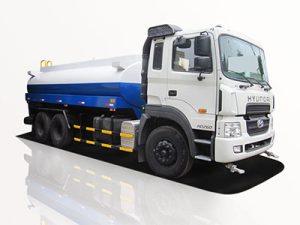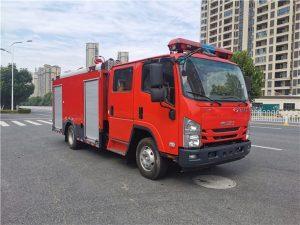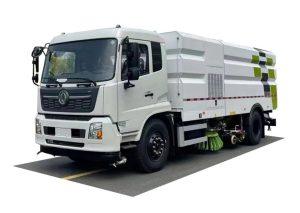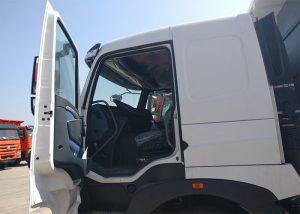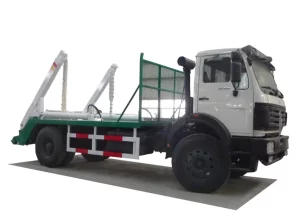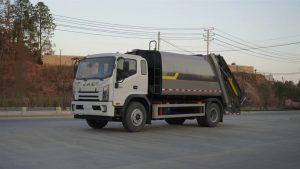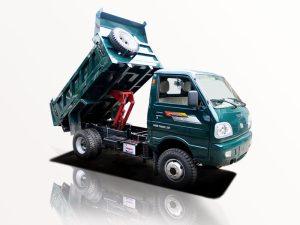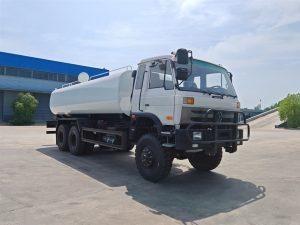Monday to Saturday - 8:00 -17:30
European Mini Trucks: The Compact Solution for Modern Transport
In the landscape of modern transportation, the rise of European mini trucks represents a significant shift towards efficiency and versatility. These compact vehicles are designed to cater to various needs, from urban deliveries to recreational uses, making them popular among businesses and individuals alike. This article aims to explore everything you need to know about European mini trucks, focusing on their features, advantages, comparisons with other vehicles, practical applications, and more.
What Are European Mini Trucks?
European mini trucks, often referred to as compact commercial vehicles, are small trucks designed primarily for light-duty transport. These vehicles typically feature a cab-over design, allowing for a compact body that maximizes cargo space while remaining maneuverable in tight urban environments. Commonly found in various industries, they excel in scenarios where speed, efficiency, and flexibility are paramount.
Advantages of European Mini Trucks
1. Fuel Efficiency
One of the standout features of European mini trucks is their exceptional fuel efficiency. With smaller engines compared to traditional trucks, they consume less fuel, making them an economical choice for businesses. Average fuel consumption can range between 30-60 miles per gallon, depending on the model and load.
2. Maneuverability
European mini trucks are designed to navigate through narrow streets and congested urban areas. Their compact size allows for easy parking and maneuvering, which is a substantial advantage in crowded cities.
3. Versatile Cargo Space
These mini trucks come with various loading options, including flatbeds, enclosed boxes, and custom configurations for specific industries (like catering or landscaping). This adaptability makes them suitable for various purposes.
4. Cost-Effectiveness
Not only are mini trucks cheaper to fuel, but they also tend to have lower maintenance costs compared to larger trucks. Businesses can benefit significantly from reduced operational expenses.
5. Environmentally Friendly
With ongoing developments in engine technology, many European mini trucks are designed to meet stringent emission standards, making them a greener option compared to traditional vehicles.
Popular Models of European Mini Trucks
1. Piaggio Porter
The Piaggio Porter is a well-known model in the mini truck category, celebrated for its durability and flexibility. It offers a variety of body styles, including pick-up and van models, catering to diverse business needs. With a payload capacity of around 1,000 kg, it strikes an excellent balance between compact size and utility.
2. Fiat Fiorino
The Fiat Fiorino combines the characteristics of a mini truck with van-like practicality. It boasts a cargo volume of 2.5 cubic meters and is perfect for urban deliveries. Its fuel efficiency and user-friendly design make it a favorite among small business owners.
3. Volkswagen Caddy
The Volkswagen Caddy is known for its build quality and advanced features. Available in both standard and high roof variants, it offers flexible cargo options and impressive safety ratings, making it a reliable choice for commercial use.
4. Renault Kangoo
The Renault Kangoo is another popular mini truck that has gained traction in the European market. With a focus on functionality, it offers extensive storage solutions and optional electric variants for eco-conscious consumers.
5. Mercedes-Benz Citan
The Citan brings premium quality to the mini truck segment. With a stylish design and advanced technology, it appeals to businesses looking for reliability and a touch of luxury. It is available with various engine options to suit different performance needs.
Understanding the Different Types of European Mini Trucks
1. Flatbed Mini Trucks
Flatbed models are ideal for businesses involved in construction, landscaping, or transportation of bulky items. Their open design allows for easy loading and unloading of materials.
2. Enclosed Mini Trucks
Enclosed variants provide better protection for goods from the elements. These are often preferred by delivery services and businesses that require secure transport for their products.
3. Refrigerated Mini Trucks
Refrigerated models are essential for businesses dealing with perishable items, such as food delivery or pharmaceuticals. They are equipped with cooling systems to maintain optimal temperatures during transit.
Buying Guide for European Mini Trucks
1. Assess Your Needs
Before purchasing, evaluate your specific transport needs. Consider factors like the type of load, frequency of use, and whether you require specialized features.
2. Budgeting
Understand your budget, including initial costs, insurance, fuel, and maintenance expenses. Mini trucks offer varying levels of affordability, so ensure you choose one that fits your financial plan.
3. New vs. Used
Decide whether to buy a new or used mini truck. New trucks come with warranties and are less likely to require immediate repairs, while used trucks can provide significant savings. Inspect used vehicles thoroughly before purchase.
4. Test Drive
Always test drive potential options. Assess their comfort, visibility, handling, and noise levels to ensure they meet your expectations.
5. Research Financing Options
Explore financing alternatives, including loans, leases, or outright purchases. Each approach has its pros and cons, depending on your financial situation.
Maintenance Tips for European Mini Trucks
1. Regular Inspections
Conducting regular inspections of your mini truck is crucial for performance and safety. Check essential components like brakes, tires, and lights frequently.
2. Change Oil Regularly
Like any vehicle, maintaining proper oil levels and regularly changing the oil can prolong engine life. Follow the manufacturer’s recommendations for oil type and change intervals.
3. Keep it Clean
Regular cleaning extends the life of both the exterior and interior. It helps prevent rust and damage from debris or road salt.
4. Monitor Tire Condition
Proper tire maintenance is critical for safety and fuel efficiency. Ensure that tires are properly inflated and replace them when tread wear exceeds legal limits.
5. Utilize Specialized Services
For more complex issues, utilize specialized services that understand European mini trucks’ specific requirements and components.
Practical Applications of European Mini Trucks
1. Delivery Services
The compact size of European mini trucks makes them ideal for urban delivery services, especially for small packages and food deliveries. They allow businesses to navigate tight spaces and reduce delivery times.
2. Construction Projects
Construction companies utilize mini trucks for transporting materials due to their payload capacity and efficiency. They can access job sites where larger trucks may struggle.
3. Landscaping and Gardening
Landscapers often rely on mini trucks to transport plants, soil, and equipment. The flatbed designs facilitate heavy loads while remaining versatile for different tasks.
4. Small Business Operations
Many small businesses find mini trucks helpful for local transport needs, from mobile boutiques to food trucks, showcasing their versatility and utility.
5. Emergency Services
Emergency services may use mini trucks for rapid deployment of equipment or personnel in urgent situations, thanks to their agile handling and ample cargo space.
Comparing European Mini Trucks to Other Vehicles
1. Mini Trucks vs. Vans
While both provide cargo solutions, mini trucks typically offer a larger payload capacity and are better suited for heavy loads, whereas vans may prioritize passenger space and comfort.
2. Mini Trucks vs. Standard Pickup Trucks
European mini trucks are smaller and more fuel-efficient than standard pickup trucks, making them suitable for urban uses. However, pickups may have higher towing capacities.
3. Mini Trucks vs. SUVs
While SUVs provide space and comfort for passengers, mini trucks excel in commercial applications and optimized cargo space. For purely transport-focused needs, mini trucks often shine.
FAQ Section
1. What is the average payload capacity of European mini trucks?
The average payload capacity of European mini trucks ranges from 600 kg to 1,200 kg, depending on the model.
2. Are European mini trucks reliable for long-distance travel?
While designed primarily for urban use, many European mini trucks can handle long distances efficiently. It’s essential to ensure proper maintenance for extended travel.
3. Do European mini trucks require special licenses to drive?
Generally, a standard driving license is sufficient for most European mini trucks, but regulations can vary by country, so it’s best to check local laws.
4. How does the insurance for a mini truck differ from a standard truck?
Typically, insurance for mini trucks may be lower due to their smaller engine sizes and lower risk profiles. However, premiums can vary based on the specific model and usage.
5. Can I customize a European mini truck for specific needs?
Yes, many European mini trucks offer customizable options for cargo configurations, shelving, and specialized equipment to cater to specific business needs.
6. What maintenance considerations should I keep in mind for a mini truck?
Key maintenance considerations include regular oil changes, brake checks, tire maintenance, and frequent overall inspections to ensure optimal performance.


